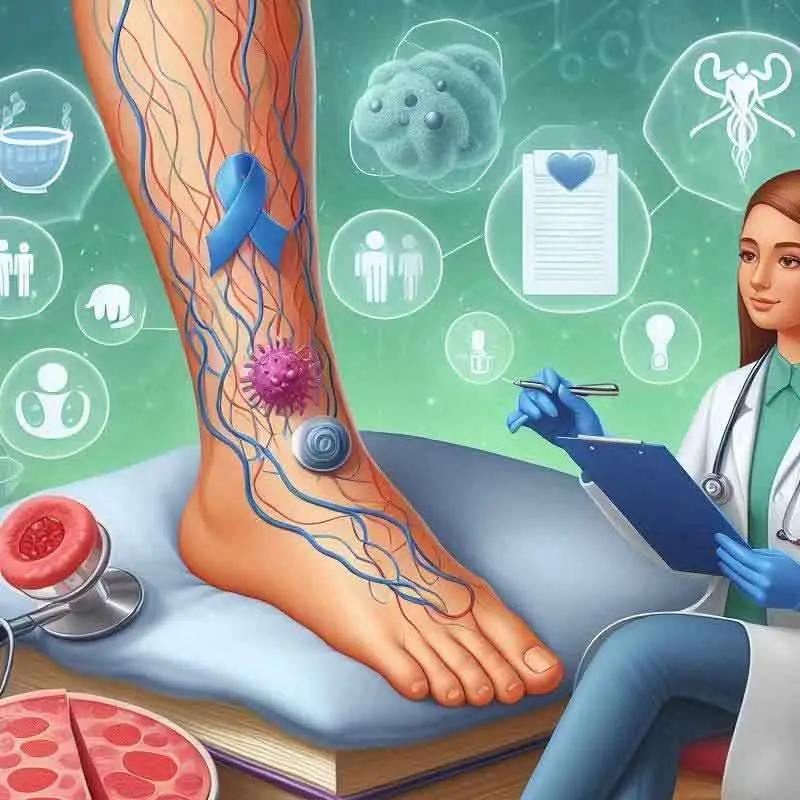Lymphedema Awareness Month is dedicated to spreading knowledge about lymphedema, supporting those affected by the condition, and advocating for better treatment options and healthcare policies. This month-long campaign aims to educate the public, healthcare professionals, and policymakers about the challenges faced by individuals living with lymphedema and the importance of early detection, treatment, and support.
What is Lymphedema, and Why is Awareness Important?
Understanding Lymphedema
Lymphedema is a chronic condition characterized by the accumulation of lymphatic fluid in tissues, leading to swelling, most commonly in the arms or legs. This occurs when the lymphatic system is damaged or blocked, preventing the proper drainage of lymph fluid. Causes of lymphedema include congenital malformations (primary lymphedema), as well as damage from surgery, radiation therapy, infections, or trauma (secondary lymphedema). Understanding the underlying mechanisms and risk factors is crucial for early diagnosis and effective management.
Impact of Lymphedema on Individuals
Lymphedema significantly impacts the lives of those affected, causing physical discomfort, pain, limited mobility, and a heightened risk of infections such as cellulitis. Additionally, it can lead to emotional and psychological challenges, including depression, anxiety, and social isolation. The chronic nature of lymphedema necessitates ongoing management and support, making awareness and education vital for improving patient outcomes and quality of life.
Lymphedema Awareness Month Significance
Lymphedema Awareness Month serves as a platform to highlight the importance of early detection, comprehensive treatment, and support for individuals living with lymphedema. By raising awareness, we can reduce stigma, encourage research and funding for better treatments, and ensure that patients receive the care and resources they need. This month is an opportunity to educate the public, healthcare providers, and policymakers about the challenges of lymphedema and the importance of a multidisciplinary approach to care.
How Can You Support Lymphedema Awareness?
Participating in World Lymphedema Day
World Lymphedema Day, observed on March 6th, is a key event during Lymphedema Awareness Month. Individuals and organizations can participate by hosting or attending events, sharing information on social media, and supporting campaigns aimed at increasing awareness and understanding of lymphedema. By joining this global movement, you can help bring attention to the needs of those affected by lymphedema and promote advancements in treatment and care.
Importance of Educational Webinars
Educational webinars provide a valuable platform for disseminating information about lymphedema to a wide audience. These online sessions can feature expert speakers, patient stories, and the latest research findings. By participating in or organizing educational webinars, you can help spread knowledge about lymphedema, its management, and the importance of early intervention. Webinars also offer a convenient way for patients and healthcare providers to stay informed and connected.
Spreading Awareness in Your Community
Raising awareness in your local community can have a significant impact. Consider organizing informational sessions at local schools, community centers, or healthcare facilities. Distribute educational materials, share personal stories, and encourage open discussions about lymphedema. Partnering with local media outlets to share information and promote awareness events can also help reach a broader audience. By fostering a supportive community environment, you can make a difference in the lives of those affected by lymphedema.
Living Well with Lymphedema
Managing Lymphedema on a Daily Basis
Effective daily management of lymphedema involves a combination of therapies and lifestyle modifications. Key strategies include wearing compression garments, performing manual lymphatic drainage (MLD), and engaging in regular exercise to promote lymph flow. Proper skin care to prevent infections and maintaining a healthy weight are also essential components of lymphedema management. Developing a consistent routine and seeking support from healthcare professionals can help patients manage their symptoms and improve their quality of life.
Seeking Proper Lymphedema Treatment
Early intervention and comprehensive treatment are crucial for managing lymphedema effectively. Treatment options include conservative approaches such as compression therapy and MLD, as well as surgical interventions like lymphovenous bypass (LVB) and vascularized lymph node transfer (VLNT). These surgical options can provide significant relief by restoring lymphatic function and reducing swelling. Consulting with a certified lymphedema therapist or a specialist in lymphedema surgery can help patients determine the most appropriate treatment plan.
Resources for Lymphedema Patients
Numerous resources are available to support individuals living with lymphedema. These include patient advocacy organizations, online support groups, educational websites, and local support groups. Access to reliable information and a supportive community can empower patients to manage their condition effectively. Healthcare providers can also offer valuable guidance and referrals to specialized services. Utilizing these resources can help patients stay informed, connected, and proactive in their lymphedema management.
Advocacy and Healthcare Support for Lymphedema
The Role of Healthcare Professionals
Healthcare professionals play a vital role in the diagnosis, treatment, and support of lymphedema patients. Physicians, lymphedema therapists, nurses, and other specialists work together to provide comprehensive care. Early detection and intervention by healthcare providers can prevent the progression of lymphedema and improve patient outcomes. Ongoing education and training for healthcare professionals are essential to ensure they are equipped with the latest knowledge and skills to support their patients effectively.
Lymphedema Treatment Act and Insurance Coverage
Advocacy efforts, such as the Lymphedema Treatment Act in the United States, aim to improve insurance coverage for lymphedema treatment. This legislation seeks to ensure that compression garments, essential for managing lymphedema, are covered by insurance plans. Increased insurance coverage can significantly reduce the financial burden on patients and improve access to necessary treatments. Supporting such advocacy efforts can lead to better healthcare policies and improved patient care.
Supporting the Lymphedema Community
Supporting the lymphedema community involves:
- Raising awareness.
- Advocating for better treatment options.
- Providing emotional and practical support to those affected.
This can include participating in awareness campaigns, volunteering with patient advocacy organizations, and offering support to friends or family members living with lymphedema. By fostering a supportive environment, we can help individuals with lymphedema lead healthier, more fulfilling lives.
Conclusion
Lymphedema Awareness Month is an opportunity to educate, advocate, and support those affected by lymphedema. By raising awareness about the condition, promoting early detection and treatment, and supporting patient advocacy efforts, we can improve the quality of life for individuals living with lymphedema. Whether through participating in awareness events, spreading information in your community, or supporting advocacy initiatives, everyone can play a role in making a difference. Together, we can enhance understanding, reduce stigma, and promote better care and support for the lymphedema community.
FAQ:
Q: What is Lymphedema Awareness Month?
A: Lymphedema Awareness Month is a dedicated time to raise awareness about lymphedema and lymphatic diseases, educate people about its impact, and advocate for better support and treatments for those with the condition.
Q: How can I get involved during Lymphedema Awareness Month?
A: You can get involved by participating in events, sharing information on social media, supporting organizations that focus on lymphedema care, and educating others about the challenges faced by people with lymphedema.
Q: Why is raising awareness about lymphedema important?
A: Raising awareness about lymphedema is crucial to ensure that more people understand the condition, its symptoms, and the available treatment options. Increased awareness can lead to better support and resources for individuals living with lymphedema.
Q: What are some common treatments for lymphedema?
A: Common treatments for lymphedema include manual lymphatic drainage, compression therapy, exercise, and skincare. These therapies aim to reduce swelling, manage symptoms, and improve the overall quality of life for individuals with lymphedema.
Q: How is lymphedema characterized?
A: Lymphedema is characterized by swelling in a specific part of the body, often in the arms or legs, due to a compromised lymphatic system. It can result from cancer treatment, surgery, or other underlying conditions.
Q: What is the approach to managing lymphedema?
A: The approach to managing lymphedema involves a combination of therapies tailored to each individual, including physical therapy, compression garments, and lifestyle modifications. Regular monitoring and self-care are also essential components of lymphedema management.
Q: How can I recognize if I have lymphedema?
A: You may recognize lymphedema by observing persistent swelling, changes in skin texture, heaviness or tightness in the affected limb, and reduced flexibility or range of motion. If you suspect lymphedema, it is important to consult a healthcare provider for proper diagnosis and treatment.





